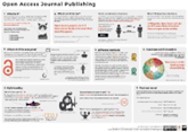Open Access
Flinders University Library supports open access to research, ensuring that research outputs are freely available to everyone. This is achieved in two ways:
- Publishing open access: Researchers can publish their work in journals we have agreements in place at no charge or a discounted rate (terms and conditions apply, see here for more information).
- Making existing outputs open access: Research already published can be shared freely at no cost through university-hosted platforms.
The University's Open Access Policy requires that research outputs (including non-traditional research outputs) be made open access unless there is a valid reason not to. Researchers can choose the open access route that is most suitable to their research, while also meeting any obligations linked to grant funding.
Why Open Access matters
Open access promotes global equity by removing barriers to accessing research. It ensures that knowledge is available to everyone, regardless of their location or resources.
Flinders University supports open and ethical research practices, aligning with:
- FAIR Principles: Ensuring research and data are Findable, Accessible, Interoperable and Reusable.
- CARE Principles: Promoting ethical use of data, especially when it relates to Indigenous peoples or communities.
ResearchNow can be used to make article manuscripts open access at no cost and to showcase a variety of research, including non-traditional research outputs
Use the ROADS repository at Flinders to make your research datasets open access and reusable by others.
Have your reports hosted by Flinders with a stable DOI and a registered ISBN to aid in discoverability.
View offers available for free and discounted open access publishing options in selected journals.
Attend a library workshop to learn more about publishing open access, avoiding predatory publishers, and sharing all kinds of outputs.
Flinders University encourages researchers to learn about, adopt and encourage open research practices, where relevant or possible.
Benefits of open access
Open access to research outputs offers several benefits:
- Wider readership & greater citations: Without being behind a paywall, open access articles are accessible to a broader, more diverse audience. This not only boosts readership and citations but also the chances of finding collaborators and amplifying the impact of research.
- Compliance with funding requirements: Ensures compliance with open access mandates for publicly funded research, maximising the visibility and accessibility of findings so more people can benefit from it.
- Accelerate innovation: Open licences allow other researchers to build on existing research, translating research into real-world applications faster. By breaking down barriers, open access fosters a collaborative and dynamic research environment.
Open Access Week
International Open Access Week is celebrated in the third week of October every year. It aims to raise awareness about the importance of making research information freely available to everyone.
Flinders University Library supports Open Access through Read & Publish agreements, as well as support and training for researchers using our Open Access repositories.
In 2025, Open Access Week was held from October 20–26. A recording is available of the keynote panel event, In conversation: Open Access, AI, & who owns our knowledge?, held on Thursday October 23rd in Alere North. Hosted by Flinders University Library, the event brought together Director of Library Services Prashant Pandey, Dr Matthew Stephenson, Associate Professor Vera Weisbecker, and Tom Upitis, with Associate Library Director Liz Hall as MC. The panel explored Open Access in an AI-driven world—asking who benefits from open knowledge, and why researchers might choose to make their work openly available, even when it may be used by AI tools. The discussion was lively, human-centred, and full of insight.
A recording is available of the 2024 Open Access Week keynote event, Coffee, cake & Open Access: A researcher Q&A discussion, featuring a keynote from Professor Vincent Bulone, a welcome address from Director of Library Services Mr Prashant Pandey, and a panel discussion featuring Professor Tim Cavagnaro, Professor Raj Shekhawat, and Professor Sharyn Roach Anleu.
A recording is also available of the 2023 Open Access Week Launch Event, which celebrated the launch of the University’s new Open Access Policy.
Open Access infographic – Click to enlarge.
By Ginny Barbour, Stephanie Bradbury,
Paula Callan & Anne Walsh. CC-BY-NC.
Open access requirements for grants
Researchers who have received grant funding should ensure they are aware of their funding body’s open access mandates and choose publishing avenues that comply with their grant conditions.
ARC and NHMRC advise against relying on the use of commercial, social media platforms such as ResearchGate and Academia.edu as a way for meeting open access compliance requirements. Visit the open access policy requirements from ARC and NHMRC for more information.
Recipients of an Australian Research Council grant will need to comply with the ARC Open Access Policy that requires most publications to be made open access within 12 months from publication date. For journal articles, this is preferably through depositing your accepted manuscript to be made open access at no cost through ResearchNow, or in an openly accessible public digital archive. You may also be able to publish open access at no cost by choosing a journal eligible for waived fees under a library Read & Publish agreement.

All NHMRC grant holders are subject to the NHMRC Open Access Policy. It requires that all peer reviewed publications are published open access immediately, with a Creative Commons Attribution licence allowing reuse by others. There are several avenues through which this can be achieved:
- By publishing open access at no cost in a journal covered by a library Read & Publish agreement
- By publishing in a fully open access (gold OA) journal with payment of an APC, as long as that journal only offers open access publishing. Payment of an APC in a journal that offers regular subscription publishing is not congruent with the policy
- Prior to submitting to a journal, add the prescribed rights statement (in italics below) to the manuscript. If the article is accepted for publication with this statement, then upload it to ResearchNow where it can be made open access immediately after article publication. Rights statement wording to be included:
This research was funded in whole or part by the National Health and Medical Research Council [Grant number]. For the purposes of open access, the author has applied a CC BY public copyright licence to any Author Accepted Manuscript version arising from this submission.

![]()
Sturt Rd, Bedford Park
South Australia 5042
Ph: 1300 354 633 (Select 3)
Email: library@flinders.edu.au
CRICOS Provider: 00114A TEQSA Provider ID: PRV12097



